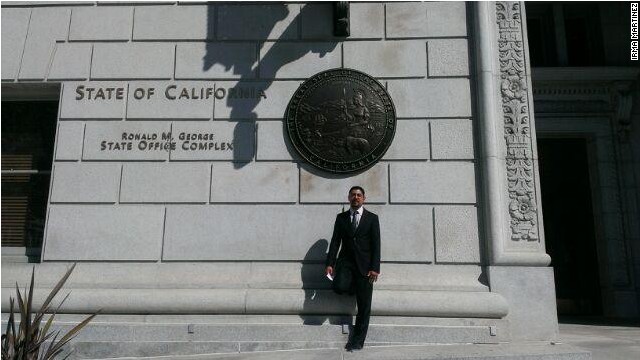A global war on girls, which is endemic in parts of the developing world, may have landed in Britain according to a study that claims some immigrant families are using selective terminations to choose the sex of their children.
Afghan, Pakistani and Bangladeshi communities in Britain have been accused of aborting female fetuses by the Independent newspaper. An analysis of government figures suggests that the proportion of second and third born children within those groups is statistically abnormal—favoring the birth of boys.
READ MORE Democracy Sidelined in Egypt Vote
“There is absolutely no doubt that these terminations, where a mother has an abortion because the child is a girl, are taking place within the South Asian population in Britain,” said Jasvinder Sanghera, a rights campaigner. “I think almost any Asian woman you talk to would say she feels a pressure to have a male child. There will be many, many Asian women out there who are pregnant and who are thinking, ‘please, please let it be a boy’.
The study claims that the practice is so common that the natural 50-50 gender balance has been upended in some immigrant communities. Based on extrapolations of the data, the newspaper claims that between 1,400 and 4,700 girls are missing from the 2011 national census records of England and Wales.
READ MORE Tea Party Author: Hitler Escaped
Last year the British government carried out its own investigation into gender-based abortions and found no evidence that it was taking place. The newspaper conceded that families choosing to keep having children until they naturally conceived a boy could account for most of the statistical bias.
Christoforos Anagnostopoulos, a lecturer in statistics at Imperial College London, however, said that among Pakistani, Bangladeshi and Afghan communities there was evidence of a clear trend. “The only readily available explanation that is consistent with a statistically significant gender shift of the sort observed in the census data is gender-selective abortion,” he told the Independent. “In the absence of a better theory, these findings can be interpreted as evidence that gender-selective abortion is taking place.”
READ MORE On Blaming Nazi Space Aliens
Families aborting female fetuses in order to guarantee the birth of a son has been a known issue in countries including India and Pakistan for decades but it is not commonly seen in western democracies. In China, the one-child policy, which was relaxed at the end of last year, has helped to create the highest gender imbalance in the world. Recent Chinese statistics suggested there were 120 newborn boys for every 100 girls.
A spokeswoman for Britain’s Department of Health did not comment on the results of the study, but condemned the practice of gender-based terminations “Abortion on the grounds of sex selection is against the law and completely unacceptable,” she said.
READ MORE Arms Crackdown Could Help Al Qaeda
A spokeswoman for the British Pregnancy Advisory Service wrote in a series of messages on Twitter: “It is not our experience that women from any specific communities seek sex selective abortions. The claim of a “war” on female foetuses in Britain is hugely insulting to both women and to immigrant communities. Outrageous to suggest women shouldn’t have access to information about their pregnancy because they can’t be trusted to make moral decisions. Where gender discrimination exists it must indeed be tackled, but certainly not in the form of further undermining women’s rights. Women from immigrant groups request abortions for the same reasons as women from the UK—because they have a pregnancy they can’t cope with.”
Dr Sudhir Sethi, a pediatrician, claimed that some mothers were travelling back to Asia for terminations at clinics where the regulations were far less stringent. He said he knew of 12 mothers who had travelled to India for terminations of female fetuses. “There are no reliable and absolute figures to say how many [are travelling abroad for terminations] but we can say that they are more than just a few, to say the very least,” he said. “There are many travelling to India, not only from the UK but those settled in other parts of the world. It is a lucrative and a thriving business—overseas Indians are more lucrative because of the amount they can pay for this to be done.”
Related from The Daily Beast
Like us on Facebook – Follow us on Twitter – Sign up for The Cheat Sheet Newsletter
- Society & Culture
- Cultural Groups
Source Article from http://news.yahoo.com/gender-abortion-scandal-104500601–politics.html
The Gender Abortion Scandal
http://news.yahoo.com/gender-abortion-scandal-104500601–politics.html
http://news.search.yahoo.com/news/rss?p=immigrant
immigrant – Yahoo News Search Results
immigrant – Yahoo News Search Results

